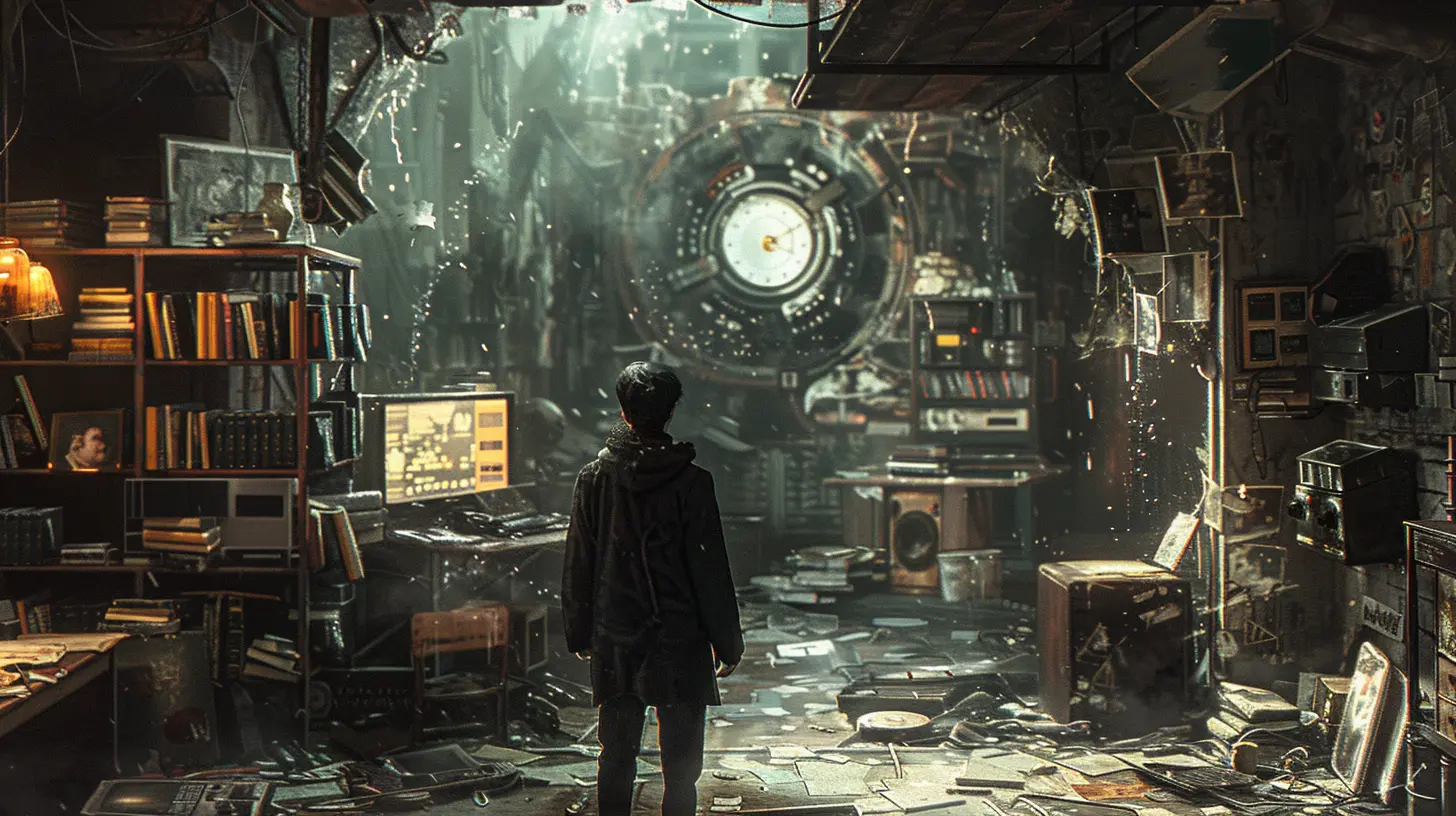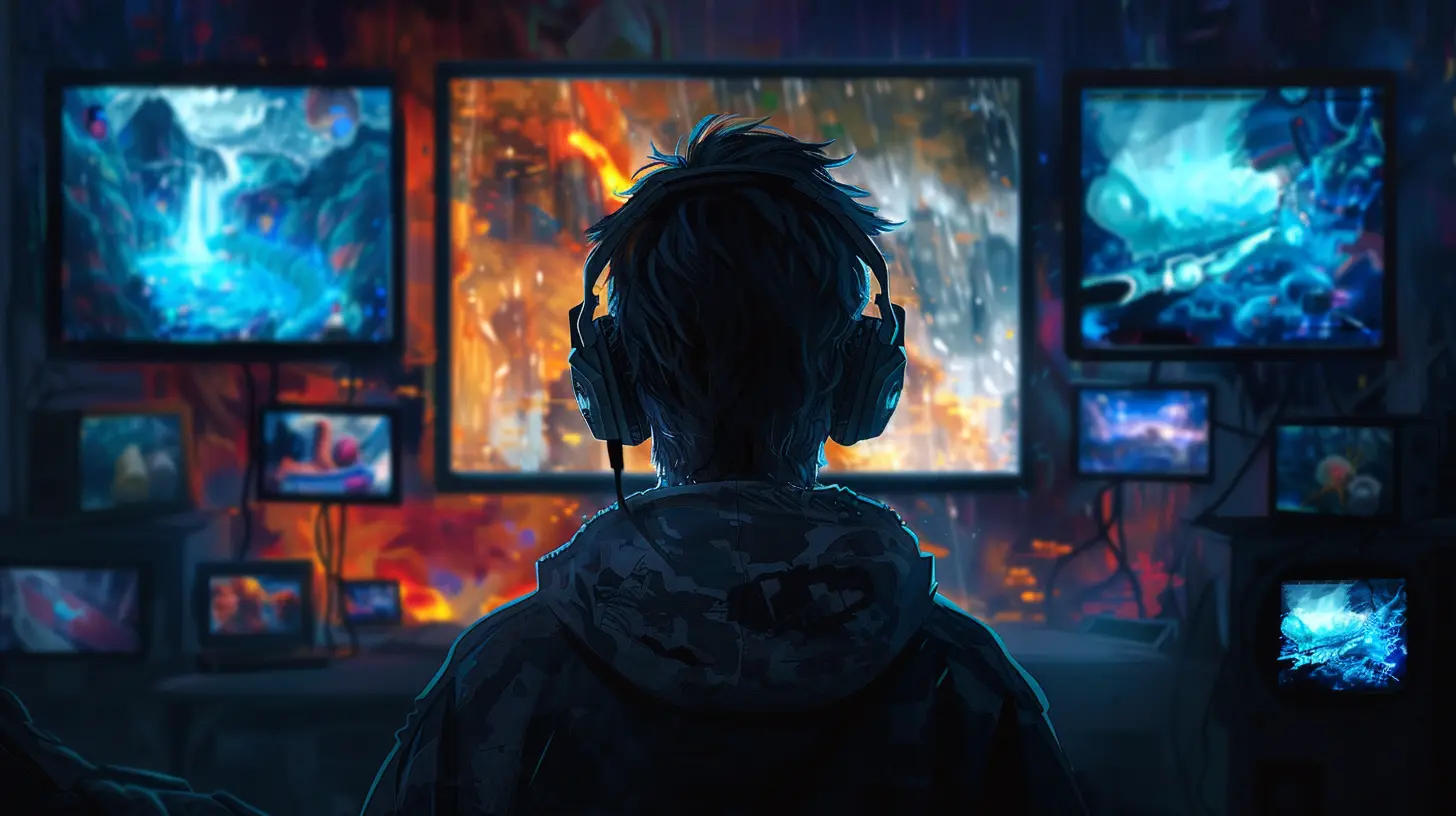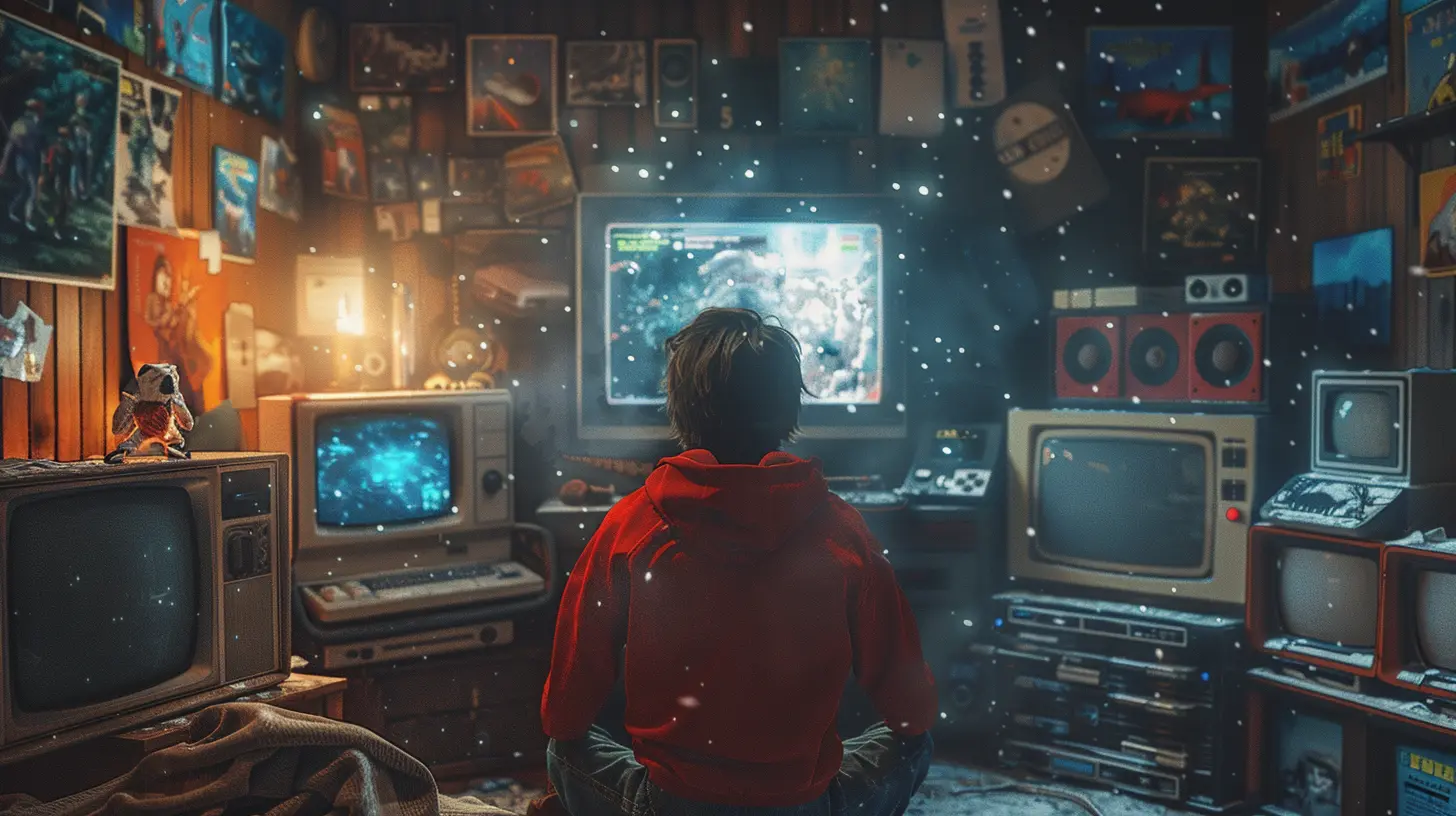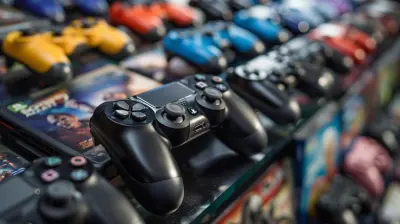Exploring the Psychology Behind Single Player Game Addiction
10 July 2025
Let’s have some real talk for a second. You know that moment when you sit down to play a single-player game, and suddenly, hours have melted away into a blurry mess of late-night snacking, unwashed dishes, and dark under-eye circles that could rival a raccoon’s? Yeah, we’ve all been there. Single-player games are like a black hole; they suck you in and refuse to let go. But have you ever stopped and wondered why? What is it about wandering vast, lonely worlds, solving puzzles, or overthrowing imaginary tyrants that hooks us so deeply? Let’s dive into the psychology behind single-player game addiction and, in true gamer fashion, try to "level up" our understanding.
The Solo Loop: What Makes Single-Player Games So Addictive?
Alright, so let’s get this out of the way—addiction to single-player games isn’t necessarily a bad thing. (Unless, of course, your life begins to resemble a bad parody of The Sims, where your hygiene and social meter are screaming in red.) But there’s something about these games, in particular, that gives them an almost magical grip on us.1. Escaping Reality, One Virtual Quest at a Time
Let’s face it—reality can be a bit... meh sometimes. You’ve got bills to pay, work deadlines stacking up, and Karen from accounting breathing down your neck. Single-player games offer the perfect escape. It’s like stepping into a parallel universe where you’re the chosen one, the hero, the badass with a sword, magic powers, or a post-apocalyptic survival kit. Who wouldn’t want to trade tax returns for slaying dragons?Psychologists call this escapism—and it’s not inherently bad. In fact, a little escapism can be therapeutic. Games provide a safe space to take a breather and dive deep into a world where the stakes are high, but the consequences? Eh, just reload the last save and try again.
2. The Allure of Control in a Chaotic World
Life is messy. You can’t always control what’s happening around you. But in single-player games, you have the reins—complete, unapologetic control. You get to decide if you want to stick to the main storyline or spend 50+ hours picking flowers and crafting potions (cough Skyrim cough). You’re the boss, and the game world revolves around your choices.This taps into a psychological concept known as agency—our need to feel like we have control over our lives. It’s super satisfying to see your decisions come to life in a game. That sense of control, especially when everything IRL feels like a chaotic mess, can be incredibly addictive.
3. Achievements and the Sweet, Sweet Dopamine Hit
You know those little rewards you get for completing side quests or unlocking achievements? Those aren’t just for bragging rights. They’re actually designed to mess with your brain (in a good way).When you score an achievement or reach a new level, your brain releases dopamine—the “feel-good” chemical. And once you taste that delicious brain juice, you want more. It’s the same reason people binge-watch TV shows or can’t stop scrolling through TikTok. Single-player games are masters at balancing challenge and reward, keeping you hooked by dangling just enough carrot without overloading the stick.
Blame It on the Storytelling: Why We Get Emotionally Invested
Single-player games aren’t just about mechanics or cool graphics—they’re also incredible at storytelling. Like, sob-your-eyes-out-until-3AM storytelling. (Looking at you, The Last of Us and Red Dead Redemption 2.)1. Empathy and the Power of Relatable Characters
Ever find yourself screaming at the screen when a beloved character dies or a plot twist rips your heart out? That’s because games are uniquely good at weaving stories that make us care. Through dialogue, facial expressions, and decision trees, they create characters that feel real. We don’t just play these games; we live them.Psychologists call this empathy development, and it’s why we get so emotionally invested. The more a game makes us feel, the harder it is to put it down.
2. The Immersion Factor: When Reality Blurs
There’s something mesmerizing about getting lost in a game’s world. The music, the visuals, the atmosphere—it all pulls you in. It’s called flow state, and it’s the same reason people lose track of time while painting or running marathons. In single-player games, you’re so focused on the experience that the outside world fades away.Immersive games like The Witcher 3: Wild Hunt or Hollow Knight craft entire universes for you to explore, one jaw-dropping moment at a time. And when you’re that invested, logging off feels like leaving part of yourself behind.
The “Lone Wolf” Factor: Why Solo Is Sometimes Better
So, why single-player games over multiplayer? What about good ol’ teamwork, competitive matches, or smack-talking your friends over voice chat? While multiplayer games have their charms, single-player experiences scratch an itch that group play just doesn’t.1. No Judgement, No Pressure
In single-player games, there’s no one critiquing your every move or yelling at you for being a noob. You can screw up in peace, experiment with playstyles, and take as much time as you need. It’s just you and the game—a judgment-free zone.2. The Introvert’s Playground
Let’s be real, not everyone thrives on social interaction. Some of us recharge by being alone with our thoughts and a controller. Single-player games cater beautifully to introverts, allowing them to immerse themselves without the added pressure of dealing with other players.
When Does Love Become Obsession?
Okay, so we’ve talked about why single-player games are awesome. But when does “I’m just unwinding” turn into “I haven’t seen sunlight in three days”? Here are a few signs your love for gaming might be veering into unhealthy territory.1. Neglecting Real-Life Responsibilities
If you’re missing deadlines, skipping meals, or ghosting your friends because you “just need to finish this one last quest,” it might be time to pump the brakes.2. Feeling Empty Without It
If gaming is the only thing that makes you happy, it’s worth exploring why. Hobbies are great, but balance is key.3. Losing Track of Time (Like, Constantly)
It’s normal to lose track of time occasionally, but if you’re consistently pulling accidental all-nighters, you might want to reassess. Your body (and your sleep schedule) will thank you.How to Game Responsibly
Look, no one’s saying you should quit gaming (because let’s face it, that’s not happening). But balance is everything. Here are a few tips to keep enjoying your single-player adventures without letting them take over your life:- Set Time Limits: Use a timer to remind yourself when it’s time to log off. (Yes, alarms are annoying, but future you will be grateful.)
- Take Breaks: Get up, stretch, eat something, and maybe even (gasp!) step outside for a bit. Your character might be on a quest, but you need fuel, too.
- Mix It Up: Try diversifying your hobbies. Balance gaming with exercise, reading, or hanging out with friends.
- Stay Self-Aware: Check in with yourself regularly. Are you gaming out of joy, or are you escaping something? It’s good to dig deeper every now and then.
Final Thoughts: Why We Love the Solo Grind
Single-player games are more than just a way to pass the time—they’re an escape, a challenge, and a source of joy all rolled into one. The psychology behind why we love them is fascinating, but remember: moderation is the key to keeping your love for gaming healthy and sustainable. Whether you're slaying dragons, exploring uncharted planets, or farming turnips, just make sure you’re doing it in a way that adds value to your life.So, the next time you feel yourself getting sucked into the vortex of a single-player game, just remember: it’s all about balance. Now, if you’ll excuse me, I’ve got a save file calling my name.
all images in this post were generated using AI tools
Category:
Single Player GamesAuthor:

Leandro Banks
Discussion
rate this article
2 comments
Maribel Ford
What a fascinating exploration of single player game addiction! It’s amazing how deeply these games resonate with us on a psychological level. Your insights into the mechanics of engagement really shine a light on why we get hooked. Looking forward to more thought-provoking articles like this!
September 27, 2025 at 4:19 PM

Leandro Banks
Thank you for your thoughtful feedback! I'm glad you found the exploration insightful. Stay tuned for more articles!
Avery Patel
This article brilliantly investigates the intricate psychological factors that fuel single-player game addiction. By delving into escape, immersion, and emotional investment, it highlights how these elements create compelling narratives that resonate deeply, drawing players into immersive worlds.
July 16, 2025 at 2:17 AM

Leandro Banks
Thank you for your insightful feedback! I'm glad you found the exploration of these psychological factors resonant and engaging.


